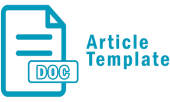THE ROLE OF LEARNING RESOURCES THROUGH THE PROGRAM SISTEM INFORMASI TAMAN BACAAN MASYARAKAT (SIMACAM) IN IMPROVING CIVIC LITERACY SOCIETY OF BANDUNG
Abstract
Keywords
Full Text:
PDF (Bahasa Indonesia)References
Creswell, J.W. (2010). Research Design Pendekatan Kualitaif, Kuantitatif dan Mixed. Yogyakarta: Pustaka Pelajar
Degeng, I N.S., (1990). Ilmu Pembelajaran: Taksonomi Variabel. Jakarta: Departemen Pendidikan Nasional.
Rachmawati, F. (2008). Dunia di Balik Kata (Pintar Membaca). Yogyakarta: Grtra Aji Parama.
Hamdani. (2013). Strategi Belajar Mengajar. Bandung: CV Pustaka Setia.
Januszewski, A. dan Molenda, (2008.) Educational Technology: A Definition with Complementary, New York: Lawrence Erlbaum Associates.
Jones, C.O. (1984). An Introduction To The Study of Public Policy. California: Brook/Cole Publishing Company
Kemedikbud. (2016). Jendela pendidikan dan kebudayaan, gerakan literasi untuk tumbuhkan budaya literasi. Edisi VI. Jakarta: Biro Komunikasi dan Layanan Masyarakat (BKLM)
Nugroho, A. (2009). Rekayasa Perangkat Lunak Menggunakan UML dan Java. Andi, Yogyakarta.
Sutarno, N.S. (2008). Membina Perpustakaan Desa. Jakarta: Sagung Seto.
Syahriani, A. (2010). Optimalisasi Budaya Literasi di kalangan mahasiswa: Upaya meretas komunikasi global. Jurnal UI Untuk Bangsa Seri Sosial dan Humaniora. l (1), hlm. 67- 78
Duffy, T.M. & David H. Jonassen. (1992). Constructivism and The Technology of Instruction. Hillsdale. New Jersey: Lawrence Erbaum Associates.
Miarso, Y. (2005). Menyemai Benih Teknologi Pendidikan. Jakarta: Kencana
Wuryan & Syaifullah. (2013). Ilmu Kewarganegaraan (Civics). Bandung: Laboratorium Pendidikan Kewarganegaraan
DOI: https://doi.org/10.17509/civicus.v19i1.16664
Refbacks
- There are currently no refbacks.
Copyright (c) 2019 Ina Apriliani

This work is licensed under a Creative Commons Attribution-NonCommercial-ShareAlike 4.0 International License.
Our journal indexed by :
Jurnal Civicus is published Univesitas Pendidikan Indonesia in collaboration with Indonesia Association Profession of Pancasila and Civic Education/Asosiasi Profesi Pendidikan Pancasila dan Kewarganegaraan (AP3KnI).

Jurnal Civicus is licensed under a Creative Commons Attribution-NonCommercial-ShareAlike 4.0 International License.





__.png)










